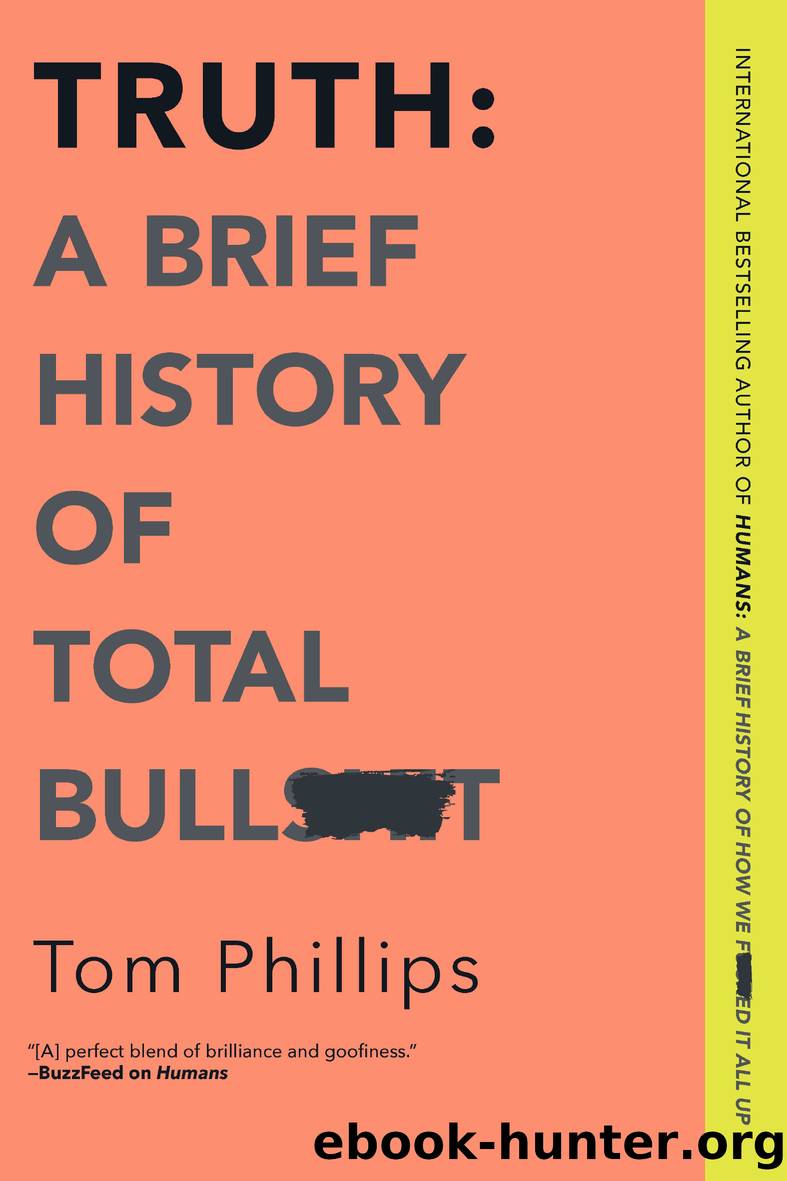Truth by Tom Phillips

Author:Tom Phillips
Language: eng
Format: epub
Publisher: Hanover Square Press
Published: 2020-03-10T14:14:47+00:00
Thérèse Humbert
The Château de Marcotte didn’t actually exist, but that had never stopped Thérèse talking about it like it was the most real thing in the world. “She lied as the bird sings,” as one acquaintance would later recall.134 And so convinced—and convincing—was she in her descriptions of this luxurious property, with its marble floors and lush gardens, that she seems to have persuaded plenty of other people that it was real too. Included in that was her future father-in-law, Gustave Humbert, a senator and rising star of French politics. Humbert didn’t just approve of his son Frédéric marrying Thérèse; he also gave the thumbs-up to his daughter, Alice, simultaneously marrying Thérèse’s brother, Emile, in a double wedding. Exactly why an ambitious (but not wealthy) politician would want to tie his family so closely to a bunch of weird, impoverished ne’er-do-wells like the Daurignacs is a bit of a mystery, until you factor in the possible lure of them having a very big house in the country.
Oh, also, the newlyweds were cousins. Humbert’s wife was Thérèse’s aunt. Little extra detail for you there.
With her new political connections, Thérèse was right back in the game, and, with the senator’s help, quickly set about borrowing money against both her fictional château, as well as a fictional cork plantation in Portugal. But soon she wanted more, and so, in 1883, Robert Henry Crawford and his 100-million-franc will came onto the scene. The promise of that inheritance, and the money she could borrow in advance of it, would in itself have probably kept the Humberts going for a few years. But this is where Thérèse (quite possibly in collaboration with both her husband and her father-in-law) played her master stroke.
If the British weakness that MacGregor exploited was its predilection for colonial fantasy, and if the American weakness that Demara exploited was its reverence for credentials and its careless assignment of individual power, and if the Soviet weakness that Gromov exploited was its oppressive ideology and bureaucracy, then the French weakness that Humbert exploited was this: its shit-awful legal system. The French courts of the time were notorious for the slow, grinding way they proceeded and for their only fleeting attachment to notions of justice. It was in this context that Thérèse came up with a plan to extend the lifespan of her con—a plan so simple and so cunning that, frankly, I’m in awe.
She sued herself.
Or, more precisely, she invented a couple of fictional American nephews of her fictional American benefactor, in order that they could sue her, contesting the will. The point of this was not that they should win—in fact, the most important thing was that nobody ever be allowed to win, with every verdict leading to another appeal, and counter-appeal, and then around again, all at the slowest possible pace that the French courts could achieve. The Crawford brothers never even needed to make an appearance, instead instructing some of Paris’s finest lawyers by letter from across the ocean. The only
Download
This site does not store any files on its server. We only index and link to content provided by other sites. Please contact the content providers to delete copyright contents if any and email us, we'll remove relevant links or contents immediately.
| Dark Humor | Humorous |
| Satire |
The Hating Game by Sally Thorne(19249)
Cat's cradle by Kurt Vonnegut(15345)
The Break by Marian Keyes(9362)
Crazy Rich Asians by Kevin Kwan(9285)
A Man Called Ove: A Novel by Fredrik Backman(8434)
Me Before You by Jojo Moyes(6570)
The Rosie Project by Graeme Simsion(6392)
Beartown by Fredrik Backman(5748)
A Year in the Merde by Stephen Clarke(5425)
Beach Read by Emily Henry(5412)
Eleanor Oliphant Is Completely Fine by Gail Honeyman(5276)
The Unhoneymooners by Christina Lauren(4927)
Audition by Ryu Murakami(4926)
China Rich Girlfriend by Kwan Kevin(4561)
Rich People Problems by Kevin Kwan(4286)
Ayesha At Last by Uzma Jalaluddin(4167)
The Rosie Effect by Graeme Simsion(3465)
Lamb, the Gospel According to Biff by Christopher Moore(3431)
Hardcore Twenty-Four by Janet Evanovich(3390)
